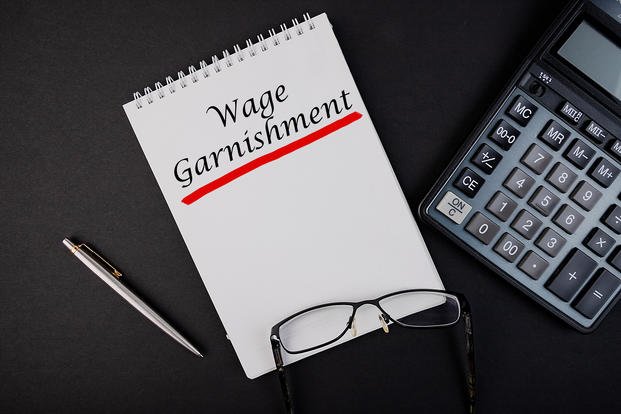Did you know that your active duty and retired military pay can be taken from you if you don't pay your bills including child support, alimony, taxes or other debts?
You may have heard of someone getting their pay garnished. This is the legal term for withholding a person's pay in order to satisfy legal debts they refuse to pay.
The garnishment process is complicated, so it is usually only done if someone habitually refuses to pay their debts, owes several thousand dollars or has caused enough trouble to the person owed the money that a court had to get involved.
Federal law authorizes the pay of active, reserve, and retired members of the military and the pay of civilian employees of the Federal government to be garnished (or taken) if a court or a military legal office rules that you have a legal debt and you have refused to make payments on it.
It's not just your basic pay that can be withheld, garnishments can also include almost all of your "pay" such as special pay, incentive pay, etc. Your allowances such as Basic Allowance for Housing and Basic Allowance for Subsistence cannot be garnished.
There are voluntary and involuntary garnishments, usually an involuntary garnishment requires a court-order unless it is to repay a debt to the federal government.
Garnishment Limits
By law, the maximum amount of your wages that can be garnished is the lesser of:
- 25% of your weekly net pay, or
- Thirty times the Federal minimum hourly wage;
Exceptions of Garnishment Limits
However, if the garnishment is for:
- Any court order for the support of another person (such as child support or alimony);
- Any court order;
- Any debt due for any State or Federal tax;
those rules don't apply.
In these cases up to 60% of your net pay can be withheld.
Know All Your Legal Rights and Benefits
Be aware and get what you are entitled to. Keep up with all the legal benefits available to you as a service member, veteran or spouse and get updates delivered straight to your inbox by subscribing to Military.com












